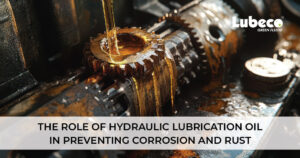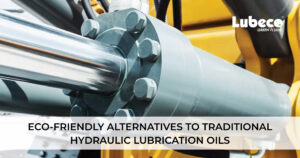In the world of heavy industry, maintaining cleanliness and efficiency is paramount. From manufacturing plants to automotive workshops, the need for effective cleaning solutions is undeniable.
Among the various options available, solvent cleaners have emerged as a powerful and versatile choice for tackling tough grime, grease, and contaminants.
This blog delves into the applications and benefits of solvent cleaners in heavy industrial settings, providing a comprehensive guide to their use and advantages.
What Are Solvent Cleaners?
Solvent cleaners are chemical solutions designed to dissolve, disperse, or remove contaminants such as oil, grease, dirt, and other residues from surfaces, machinery, and equipment.
They are typically composed of organic compounds that can break down and lift away stubborn substances without leaving behind significant residue.
Solvent cleaners are available in various formulations, including chlorinated, hydrocarbon, and bio-based solvents, each tailored to specific industrial needs.
Applications of Solvent Cleaners in Heavy Industry
Solvent cleaners are widely used across multiple industries due to their effectiveness and versatility. Below are some of the most common applications:
1. Manufacturing and Machinery Maintenance
In manufacturing plants, machinery and equipment are often exposed to oils, lubricants, and metal shavings.
Solvent cleaners are used to degrease and clean these components, ensuring optimal performance and longevity.
Regular cleaning with solvents helps prevent the buildup of contaminants that can lead to equipment failure or reduced efficiency.
2. Automotive and Aerospace Industries
The automotive and aerospace sectors rely heavily on solvent cleaners for tasks such as engine degreasing, parts cleaning, and surface preparation before painting or coating.
Solvents effectively remove grease, carbon deposits, and other contaminants, ensuring that parts meet strict quality and safety standards.
3. Metal Fabrication and Welding
In metal fabrication, solvent cleaners are used to remove oils, rust inhibitors, and welding residues from metal surfaces.
This is crucial for ensuring proper adhesion of coatings, paints, or adhesives. Solvents also help prepare surfaces for further processing, such as plating or anodizing.
4. Electronics and Electrical Equipment
Solvent cleaners play a vital role in the electronics industry, where precision cleaning is essential.
They are used to remove flux residues, dust, and other contaminants from circuit boards, connectors, and other sensitive components.
This helps prevent short circuits and ensures the reliability of electronic devices.
5. Oil and Gas Industry
In the oil and gas sector, solvent cleaners are used to clean pipelines, storage tanks, and drilling equipment. They effectively remove heavy oil deposits, paraffin, and other residues, ensuring the smooth operation of equipment and reducing the risk of contamination.
6. Printing and Packaging
Solvent cleaners are used to clean printing presses, rollers, and other equipment in the printing and packaging industry.
They help remove ink, adhesives, and other residues, ensuring high-quality output and minimizing downtime.
7. Construction and Heavy Equipment
Construction equipment, such as bulldozers, cranes, and excavators, are often exposed to mud, grease, and other tough contaminants.
Solvent cleaners are used to clean these machines, improving their performance and extending their lifespan.
Benefits of Solvent Cleaners for Heavy Industrial Use
Solvent cleaners offer numerous advantages that make them indispensable in heavy industrial applications. Here are some of the key benefits:
1. Effective Cleaning Power
Solvent cleaners are highly effective at breaking down and removing stubborn contaminants, such as grease, oil, and tar.
Their ability to dissolve these substances quickly and efficiently makes them a preferred choice for heavy-duty cleaning tasks.
2. Fast Evaporation
Many solvent cleaners have a high evaporation rate, which means they dry quickly after application. This reduces downtime and allows equipment to be put back into service sooner, improving overall productivity.
3. Versatility
Solvent cleaners can be used on a wide range of materials, including metal, plastic, glass, and rubber.
This versatility makes them suitable for diverse industrial applications, from cleaning machinery to preparing surfaces for coating.
4. Residue-Free Cleaning
High-quality solvent cleaners leave little to no residue after cleaning, ensuring that surfaces are clean and ready for further processing. This is particularly important in industries where even small amounts of residue can affect performance or quality.
5. Compatibility with Sensitive Components
In industries like electronics and aerospace, where precision is critical, solvent cleaners are formulated to be safe for use on sensitive components.
They effectively remove contaminants without damaging delicate parts.
6. Cost-Effectiveness
While solvent cleaners may have a higher upfront cost compared to some alternatives, their efficiency and effectiveness often result in long-term cost savings.
They require less labor and time to achieve superior cleaning results, reducing overall operational costs.
7. Environmental Options
With growing concerns about environmental impact, many manufacturers now offer eco-friendly solvent cleaners.
These bio-based or low-VOC (volatile organic compound) solvents provide effective cleaning while minimizing harm to the environment.
8. Improved Safety
Solvent cleaners are often formulated to be non-flammable and less toxic than traditional cleaning agents. This reduces the risk of accidents and health hazards in the workplace, contributing to a safer working environment.
9. Extended Equipment Life
Regular cleaning with solvent cleaners helps prevent the buildup of contaminants that can cause wear and tear on machinery and equipment.
This extends the lifespan of assets and reduces the need for costly repairs or replacements.
10. Compliance with Industry Standards
Many solvent cleaners are designed to meet stringent industry standards and regulations, ensuring that they are safe and effective for use in specific applications.
This is particularly important in industries like aerospace, automotive, and electronics, where compliance is critical.
Choosing the Right Solvent Cleaner
With so many options available, selecting the right solvent cleaner for your industrial needs can be challenging. Here are some factors to consider:
- Type of Contaminant: Identify the type of contaminant you need to remove (e.g., oil, grease, rust, etc.) and choose a solvent cleaner formulated to tackle that specific substance.
- Material Compatibility: Ensure the solvent cleaner is safe for use on the materials you are cleaning, such as metal, plastic, or rubber.
- Evaporation Rate: Consider the drying time required for your application. Fast-evaporating solvents are ideal for quick turnaround times, while slower-evaporating options may be better for more thorough cleaning.
- Environmental Impact: If sustainability is a priority, opt for eco-friendly solvent cleaners with low VOC content or bio-based formulations.
- Safety: Choose solvents that are non-flammable and less toxic to ensure the safety of workers and compliance with regulations.
- Cost: Evaluate the cost-effectiveness of the solvent cleaner, taking into account its efficiency, required usage, and long-term benefits.
Best Practices for Using Solvent Cleaners
To maximize the effectiveness and safety of solvent cleaners, follow these best practices:
- Read the Label: Always read and follow the manufacturer’s instructions for use, including safety precautions and recommended application methods.
- Use Proper Ventilation: Ensure adequate ventilation when using solvent cleaners to avoid inhaling fumes.
- Wear Protective Gear: Use gloves, goggles, and other protective equipment to prevent skin and eye contact with solvents.
- Dispose of Waste Properly: Follow local regulations for the disposal of used solvents and contaminated materials.
- Store Safely: Store solvent cleaners in a cool, dry place away from heat sources and out of reach of unauthorized personnel.
- Test First: Before using a solvent cleaner on a large area, test it on a small, inconspicuous spot to ensure compatibility and effectiveness.
Final Thoughts
Solvent cleaners are an essential tool in the heavy industrial sector, offering unmatched cleaning power, versatility, and efficiency.
From maintaining machinery to preparing surfaces for coating, their applications are vast and varied.
By understanding their benefits and choosing the right product for your needs, you can enhance productivity, extend equipment life, and ensure compliance with industry standards.
As industries continue to evolve, so do solvent cleaners. With the rise of eco-friendly formulations, businesses can now achieve superior cleaning results while minimizing their environmental impact.
Whether you’re in manufacturing, automotive, aerospace, or any other heavy industry, solvent cleaners are a reliable and cost-effective solution for your cleaning challenges.
Investing in high-quality solvent cleaners is not just about maintaining cleanliness—it’s about optimizing performance, ensuring safety, and driving long-term success in your industrial operations.
FAQ’s
1. What are solvent cleaners made of?
Solvent cleaners are typically composed of organic compounds such as hydrocarbons, chlorinated solvents, or bio-based ingredients. These compounds are designed to dissolve and remove contaminants like grease, oil, and dirt effectively.
2. Are solvent cleaners safe for the environment?
While traditional solvent cleaners can have environmental impacts, many manufacturers now offer eco-friendly options, such as low-VOC (volatile organic compound) or bio-based solvents. Always check the product label for environmental certifications and disposal guidelines.
3. Can solvent cleaners be used on all types of materials?
Solvent cleaners are versatile and can be used on various materials, including metal, plastic, glass, and rubber. However, it’s essential to check the product’s compatibility with specific materials to avoid damage.
4. How do solvent cleaners compare to water-based cleaners?
Solvent cleaners are generally more effective at removing heavy grease, oil, and stubborn residues compared to water-based cleaners. They also evaporate faster, reducing downtime. However, water-based cleaners are often more environmentally friendly and safer for certain applications.
5. What safety precautions should I take when using solvent cleaners?
Always use solvent cleaners in well-ventilated areas, wear protective gear (gloves, goggles, etc.), and follow the manufacturer’s instructions. Store solvents in a cool, dry place away from heat sources, and dispose of used solvents according to local regulations.










